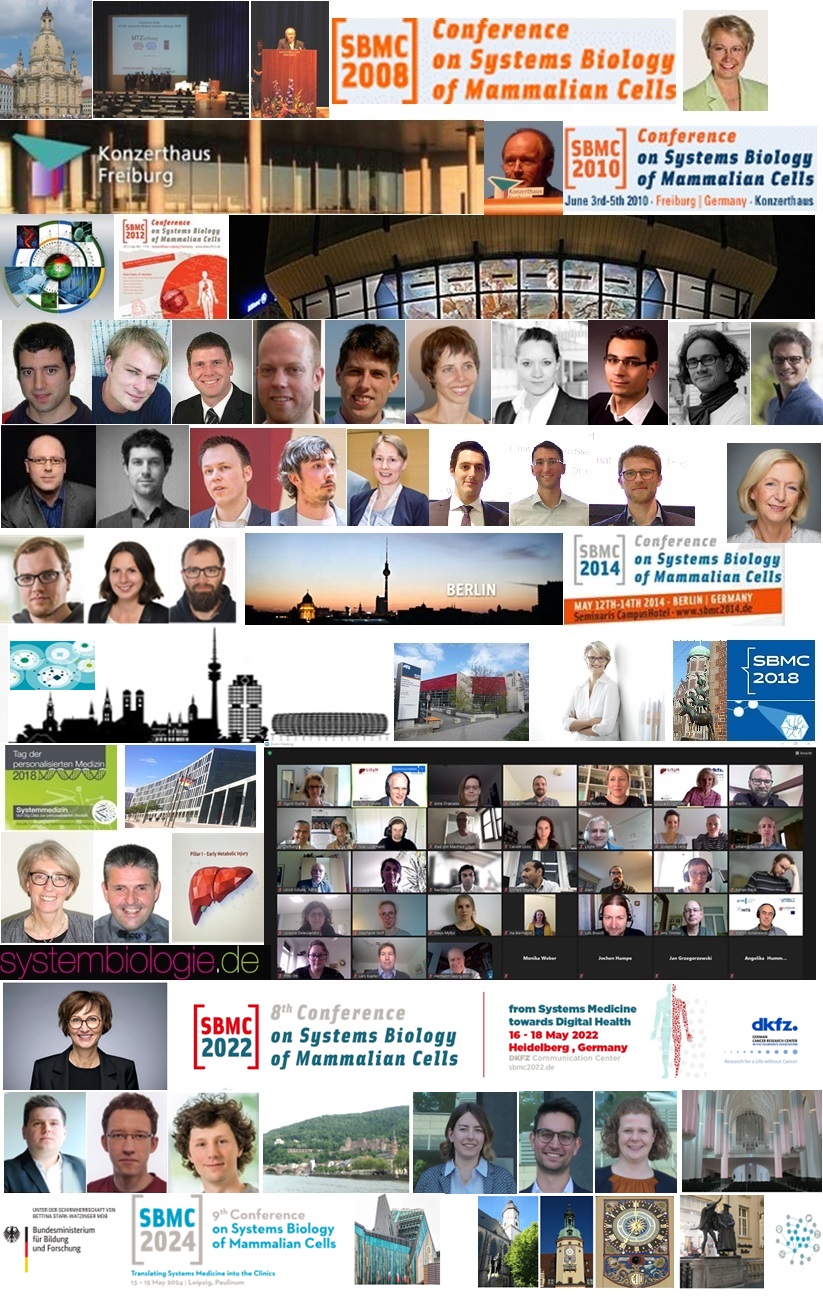Message of greeting for the 7th International Conference on Systems Biology of Mammalian Cells (SBMC 2018) of the Federal Minister of Education and Research Anja Karliczek MdB
Bildnachweis: Bundesregierung / Laurence Chaperon
The MTZ®-Award for Systems Medicine (formerly MTZ®-Award for Medical Systems Biology)

"Many medical discoveries are the result of coincidence or observation: for example when doctors notice the same signs and symptoms of a disease in different patients and suddenly see a previously unrecognized connection. Such findings used to be disseminated separately and over long periods of time via medical journals. Today, new facts and findings are not only collected much faster and more efficiently but are also assessed in a broader context.
Digital technology enables us to collect and analyse increasing amounts of biomedical research data. It harbours considerable potential and is key to understanding the complex interaction of individual genetic factors and physiological aspects, lifestyles and environmental impacts in the development of diseases.
We want to use the opportunities offered by technological progress in the health sector to benefit the individual. With our medical informatics initiative, we are establishing the preconditions to enable different institutions to make use of the data generated by research and healthcare. That is what research for the people is all about: Clearly improving conditions for patients. At the same time, we also want medical research to benefit from a better data and knowledge base.
An interdisciplinary, holistic approach to research is needed to generate new findings from the data collected. That is precisely what systems medicine is about: By combining biology, medicine, physics, mathematics and informatics, systems medicine creates the foundation for enhancing diagnostics, treatments and disease prevention.
It is my pleasure to be the patron of the seventh international conference on systems biology of mammalian cells SBMC 2018 – with a focus on the potential of systems medicine. The promotion of young talent is a topic that is particularly dear to my heart and I am therefore especially delighted that under my patronage the conference is honouring three outstanding doctoral theses with the MTZ Award for Medical Systems Biology 2018."


The MTZ-Award for Systems Medicine (MTZ-Foundation Award)
Following the central theme “For a better future…”, the MTZ®foundation (Monika and Thomas Zimmermann) fosters science and research in the field of Human Medicines. It supports the classical scientific research approach of postgraduates (also post-doctorands) in the cellular and genetic domain, as well as within the innovative field of Systems Biology that deciphers complex, cross-linked biological phenomena of cells, tissue and organisms and translates them into realistic computer models by means of an interdisciplinary approach. The main objective is to significantly contribute to the conquest of diseases by investigating on their origins and coherences. Especially bio-ethical issues play an important role when it comes to maintaining the quality of life within an increasingly ageing society.
Offering the MTZ-Award for Systems Medicine should foster future-oriented research approaches in the field of medical Systems Biology. The MTZ foundation grants the award to the promising scientific young talents whose doctoral theses have achieved groundbraking and outstanding results in the field of medically oriented Systems Biology. Our main focus lies on individualised medicine and systems medicine. In this context systems biology is the foundation for a medicine that responds to the individual needs of each patient. The way to a more personalized medicine will become more important in future funding. The MTZ-Awardees win over the national review panel with their excellent doctoral theses to emerge victorious. The award is intended to draw special attention on a prominent level and help them gain public recognition . On this behalf, the MTZ foundation co-operates with the Federal Ministry of Education and Research (BMBF) and the Project Management Jülich (PtJ).
The prize consists of a certificate and prize money - divisible and shall be assigned for the three best dissertations. The award as MTZ Award for Medical Systems Biology was offered for the first time during the 2nd Conference “Systems Biology of Mammalian Cells” from May 22nd to May 24th, 2008 in Dresden (Germany). It was the first ceremony of a National Award for young scientific talents in the field of Medical Systems Biology in Europe.
The next awarding as MTZ-Award for Systems Medicine takes place 2024 for the 9th time from May 13th to May 15th, 2024 in Leipzig (Germany).
Systems Biology
Systems biology deals with understanding and depicting the complex and dynamic processes inside cells or organs, e.g. during acclimatization, ageing or immunodefence. The wealth of data on different cell elements or functions which were gathered at different levels of the life processes (genome, proteome, metabolome) must be put in a meaningful overall context and modelled on the computer, so that simulations and forecasts become possible without laboratory experiments.
A mainly qualitative and descriptive approach oriented to molecular details is still characteristic of research in the life sciences today. The wealth of data on different cell elements or functions which were gathered at different levels of the life processes (genome, proteome, metabolome) must be put in a meaningful overall context. This is the only way to describe and understand complex system characteristics such as the regulation and control of biological systems, their manageability and system behaviour. Modelling life processes has great and promising application potential. Major progress is expected in particular in the development of new medical drugs.
An interdisciplinary research approach which combines biology with computer sciences, mathematics and the systems and engineering sciences into one "systems biology" can make a major contribution. Systems biology pursues a holistic approach and aims at developing close-to-reality models of physiological processes in cells, cell aggregations and entire organisms in order to obtain a holistic understanding of the life processes.
With the publication of the guidelines for the funding priority "Systems of Life - Systems Biology", Germany has given the go-ahead for a new interdisciplinary research programme. In the centre is the model system "liver", which is focused on hepatocyte cells. The liver is a highly complex biochemical factory which synthesizes, modifies or catabolizes over 10,000 substances daily and provides the body with vital substances such as proteins, carbohydrates and fats. The liver is a highly suitable model system for systems biology research because this cell type fulfils a large number of different tasks and thereby provides numerous possibilities for application in medicine, pharmaceuticals research and the area of nutrition.
The ultimate objective is a virtual cell which can simulate physiological processes in silico, in short the "glass liver cell".

■ More informations about Medical Systems Biology in Germany under www.systembiologie.de
■ Systems biology deals of the Federal Ministry of Education and Research


